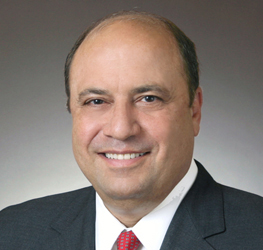State Budget: House and Senate Appear to Be at Impasse, but Secret Talks Continue
With only five days remaining in the 60-day regular legislative session, House and Senate budget negotiators have not yet begun the formal conference committee process. Conference committees, made up of representatives and senators appointed by their respective presiding officers, negotiate a final spending plan within assigned “allocations” that are agreed upon by the leaders of the two chambers. In essence, the allocations specify the total amount of state spending and the amount to be spent in each of several categories such as health care or general government. Ordinarily, allocations are in place long before the start of the conference committee process. This year, allocations had not been set as of Friday, April 23, 2009, when Senate President Jeff Atwater (R-North Palm Beach) and House Speaker Larry Cretul (R-Ocala) advised their members that there would be no weekend conference meetings.
Throughout the week, negotiators met privately to sort out the allocation issue. Senate Committee on Ways and Means Chair JD Alexander (R-Winter Haven) has been the lead negotiator for the Senate. Although a number of House members have key roles in the appropriations process, the lead negotiator for the House is Rep. Dean Cannon (R-Winter Park), Chair of the Select Policy Council on Strategic and Economic Planning and Republican Speaker-designate for the 2010-2012 biennium.
The Senate budget proposal is $549 million more than the House plan. The Senate plan makes up for general revenue shortfalls by relying on a $1-billion tobacco tax increase and increased gaming revenues. The House plan does not include these tax increases but instead makes up for some of the general revenue shortfall by transferring unused balances from a wide range of special-purpose trust funds. Both chambers also would increase a number of fees, including most fees associated with driving or owning motor vehicles.
The biggest spending difference between the chambers is in the area of higher education, where the House would cut spending on community colleges and universities by $260 million, as contrasted with a $120-million increase proposed by the Senate. The House also would make substantial transportation cuts that Sen. Alexander described as limiting the Florida Department of Transportation to “pothole repairs.” The Senate proposes layoffs of approximately 800 government workers but only minor salary cuts, while the House proposes to cut most state employees’ pay by four to five percent.
On April 21, 2009, Speaker Cretul proposed a compromise under which the House would accept most of the Senate’s proposed tax increases if the Senate would agree to the House’s lower spending levels. Although the Senate did not appear interested in the Speaker’s proposal, House leaders remained committed to the idea through the week, with Rep. Cannon stating on April 23, 2009, “Each chamber should attempt to embrace the necessary parts of the other’s approach. We have fewer revenues. They have fewer cuts.”
Even if the current impasse is broken and the leaders of the two chambers move quickly to an agreement on the big-picture allocations, all of the spending details encompassed in the appropriations act and associated legislation would still need to be worked out, which typically takes at least a week even in good budget years. Most observers agree that even if substantial progress is made by Monday, April 27, 2009, an extended session or special session is likely. The printed, agreed-upon budget must be on legislators’ desks 72 hours before the final vote on the legislation. In order for the Legislature to adjourn on May 1, 2009, the final day of the session, the printed budget would need to be available on Tuesday, April 28, 2009.
Assuming that it will be impossible for the Legislature to finish its business by May 1, 2009, the alternatives are an extension of the session or a special session that would presumably begin after a hiatus of several weeks. Both lead negotiators appeared to support an extension of the session. Sen. Alexander said, “I would not want to look back and say I wasted one day and did not work as hard as I could to resolve these issues. If you go home and come back, it would almost invariably put us into June, which would have us bumping up against July 1 [the first day of the 2009-2010 fiscal year].”
Rep. Cannon responded to a reporter’s question about whether he favored an extension by saying, “As President Atwater and Speaker Cretul indicated, talks aren’t over. Folks are continuing to run numbers this weekend and I anticipate they’ll continue talking on Monday. Right now all discussions are at the presiding officer level, and I know they are both doing their best to come to a resolution.”
Economy: Moody’s Investors Service Places Florida’s Bond Rating on Downgrade Watchlist
On April 21, 2009, Moody’s Investors Service announced that it had placed Florida’s Aa1 general obligation bond rating on its Watchlist for possible downgrade. The announcement addressed state full faith and credit bonds, several types of education capital outlay bonds, and Department of Transportation right-of-way acquisition and bridge construction bonds — all of which are currently rated Aa1 — as well as several classes of bonds that are currently rated Aa2 or Aa3.
The announcement stated:
The Watchlist action reflects the negative credit impact from a precipitous drop in revenues brought on by a protracted and deep dislocation in Florida’s real estate market as well as the current recession. The Watchlist action also reflects the continued decline in employment and personal income, relatively flat population growth and net migration. Resolution of the Watchlist will reflect Moody’s evaluation of the state’s budget resolution for fiscal 2010 and fiscal plans for the medium term as well as an assessment of the resilience of the economy, which would support efforts to bring the state’s fiscal condition back on track within the next fiscal year.
Moody’s also stated that in light of the weakened state of Florida’s economy, a downgrade in the state’s bond ratings may occur if the Legislature relies primarily on nonrecurring revenues to resolve the current budget shortfall.
According to the announcement, factors that could support the current rating include restoration of a high level of reserves, adherence to structural budget balance while also absorbing spending pressures, and adoption of a budget with less dependence on nonrecurring solutions coupled with a plan to restore reserves over the mid-term. Factors that could support a downgrade include further deterioration in the state’s economic condition that exerts additional downward pressure on revenue performance and reserve levels, further erosion in the employment base that continues to exceed the national average, increased reliance on one-time solutions to balance budget, and lack of a reasonable plan to restore reserves.
Gaming: House Adopts Its Gaming Plan While Leaders of Both Chambers Reject Governor Charlie Crist’s Proposal for a $1.1 Billion Advance From the Seminole Tribe
Gaming remains one of the key budget issues. On April 21, 2009, the House of Representatives adopted its gaming plan, which differs dramatically from the Senate’s proposal. Under the House plan, a new gaming compact with the Seminole Tribe of Florida would prohibit banked card games such as blackjack at the Seminole casinos, but would give the Seminoles the exclusive authority to operate slot machines outside of Broward and Miami-Dade counties. The House bill also would provide for higher wagering limits and extended hours for poker games at pari-mutuel facilities. According to House Select Committee on Seminole Indian Compact Review Chair Bill Galvano (R-Bradenton), the plan would produce additional state revenues of $500 million a year.
The House plan contrasts with the Senate position, which would allow a full range of casino games at the Seminole casinos and would allow blackjack at pari-mutuel facilities in Broward and Miami-Dade counties.
Gov. Crist and leaders of the Seminole Tribe proposed on April 22, 2009 that the tribe provide loans to the state to address the current budget shortfalls. Under the proposal, the tribe would pay five years’ worth of revenue sharing in two years by advancing $600 million to the state in fiscal year 2009-2010 and another $500 million in the following fiscal year. In exchange, the tribe would be able to operate a full range of casino games and have the exclusive right to operate slot machines outside of Broward and Miami-Dade counties. The loan proposal was immediately criticized by the key gaming negotiators from both chambers. Rep. Galvano said that “front-loading the payments is a short-term solution that will lead to long-term problems,” and Sen. Dennis Jones (R-Seminole) called it “smoke and mirrors.”
Negotiations between the two chambers are continuing.
Public Affairs News Alert is part of our ongoing commitment to providing up-to-the-minute information about pressing concerns or industry issues affecting our clients and our colleagues. If you have any questions about this alert or would like to discuss these topics further, please contact your Foley attorney or any of the following individuals:
Marnie George
Tallahassee, Florida
850.513.3398
[email protected]
Michael P. Harrell
Tallahassee, Florida
850.513.3373
[email protected]
Robert H. Hosay
Tallahassee, Florida
850.513.3382
[email protected]
Jonathan P. Kilman
Orlando, Florida
407.244.3256
[email protected]
Thomas J. Maida
Tallahassee, Florida
850.513.3377
[email protected]
Leonard E. Schulte
Tallahassee, Florida
850.513.3380
[email protected]

